In June 2024, I had a grand day out. My day started with my having one camera in my possession, and concluded with my having four cameras. Here’s the tale of how this happy state of affairs came to be.
I’d arisen early, and travelled from my home in Stockport to Formby on the Lancashire coast, a few miles north of Liverpool. Here I was able to photograph the wide beach and dune vistas with my Zeiss Ikon Super Ikonta 530/2. I don’t own and can’t afford a panoramic camera, but was hoping to cheat by using the 6×9 negative and cropping top and bottom to give a panoramic effect.
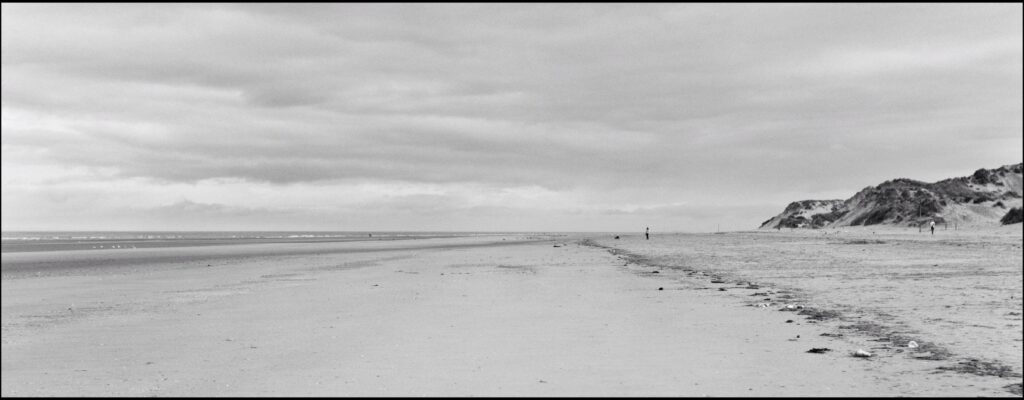
Once I had all eight images it was a fairly short drive to Knutsford in Cheshire in order to attended at an open air decorative antiques fair. I restore antique furniture and vintage leather leather luggage, and was on the lookout for possible projects at an event which was new to me.
It was a lovely day, the sort that makes one wistful when recalled on a chilly and wet evening as I write this. There were many items of interest for sale, although prices were relatively expensive as it was aimed at lifestyle design types. Indeed, some of the prices being asked were enough to make me laugh out loud, although I resisted the temptation. I’m more of a car boot person (see ‘A curious British Institution‘), but I enjoy visiting these events as you never know what you may find.
As is often the case, the stallholders will bring along all manner of different items with the hope of selling them to the perennially gullible such as I. Having only walked past two tables, the third had a pile of curiosities which had all the signs of having come from a house clearance. Amongst these oddities was a small brown camera case. I asked if I could open it up, and was then face to face with a delightful little fixed lens rangefinder camera called a Pal M4.
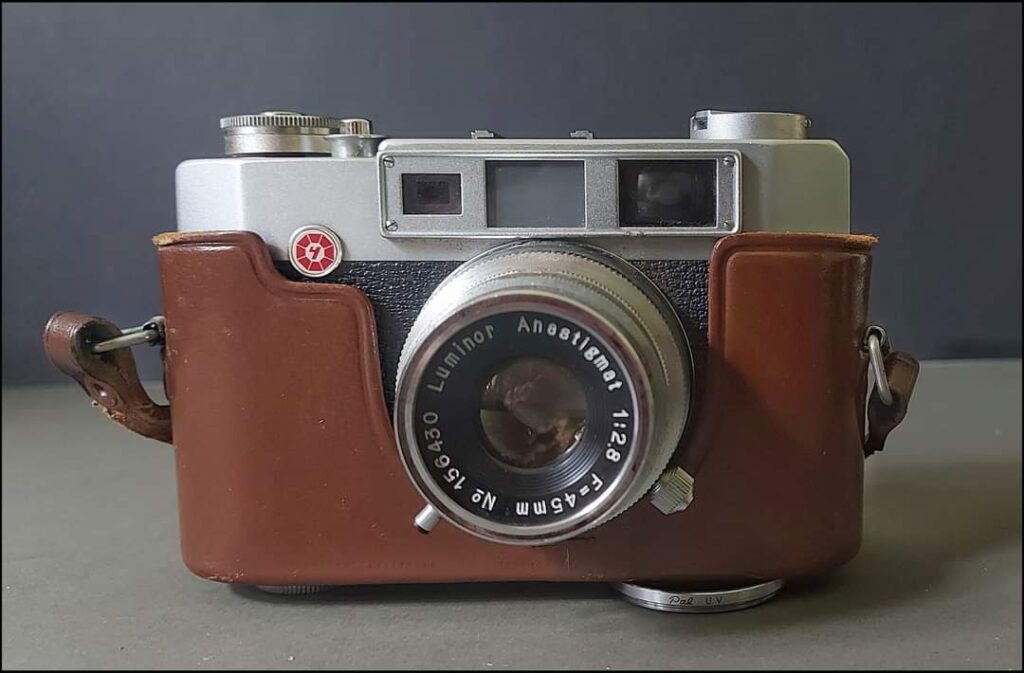
I’d never heard of this make, and although I thought it looked cute, it didn’t particularly set my pulse racing, having the standard for the time offering of a 45mm f2.8 lens. I asked the stallholder what he knew about it, and he smiled and told me “nothing mate”. The rangefinder seemed quite accurate, the wind on worked well, but I initially thought that the shutter wasn’t working. It was only when I set the shutter to B. opened the back and then fired the shutter, did I realise that it worked perfectly. This little camera must have the quietest shutter I’ve ever come across, as it is all but inaudible. The camera came with a case, a lens hood and a telephoto attachment which screws onto the front of the lens, but which was clearly damaged beyond use. For the paltry sum of £20, the camera was mine, and my initial thought was that it’d look good in a glazed book cabinet where I have some aesthetically pleasing but otherwise useless cameras. Once again my gullibility coming to the fore. I put it into my rucksack and carried on my way. Still, it’s not every day that you can buy an M4 rangefinder for £20!
Only ten yards further on, and I espied a large black box with a shoulder strap and chrome latch, which I instantly knew to be one of those sold by Praktica in the 1970s. I opened the box and found that it contained a down at heel Praktica MTL3 with a Soligor 35mm lens. There was also a Hanimex 135mm lens, a plethora of blower brushes, empty film canisters, a cheap flashgun and other detritus. The box is fitted with sections, and upon lifting the section designed to hold the camera body, I was delighted to discover a Carl Zeiss Jena Pancolar 50mm f/1.8 lens. It was a little stiff when focusing, but otherwise seemed clean with no fungus but a trace of haze. This is a lens about which I’d heard great reports, but hadn’t ever owned or tried as they can be quite expensive. I have any number of M42 nifty fifties, almost all of which make great images, and am therefore loath to spend my hard earned based only on reputation and YouTube offerings, simply to discover that the reputation is simply hype. I may be gullible, but not distressingly so.
This time, the stallholder was overflowing with enthusiasm as he espoused to me the virtues of the Praktica, the Hanimex and the Soligar before then asking for £80. I was quietly amused by such an enthusiastic sales pitch coming from someone who I suspect knew very little about cameras, however I didn’t interrupt or contradict him as there’s nothing to be gained by such behaviour. In actual fact, I’ve long had a fond regard for Praktica cameras, however the price he was asking was way above what I was prepared to pay. I employed my polite haggling skills, and he eventually offered it to me for £50. This was still a little high, but I reasoned that I could always sell the camera and cheap lenses, and keep the Panacolar. It seems that my gullibility is still an issue. I bought the box and contents for the agreed £50, and asked the stallholder if he’d mind retaining it until I returned later as I didn’t fancy lugging it about for the rest of my time there. To think that photographers used to haul such ungainly and weighty boxes around, the poor devils.
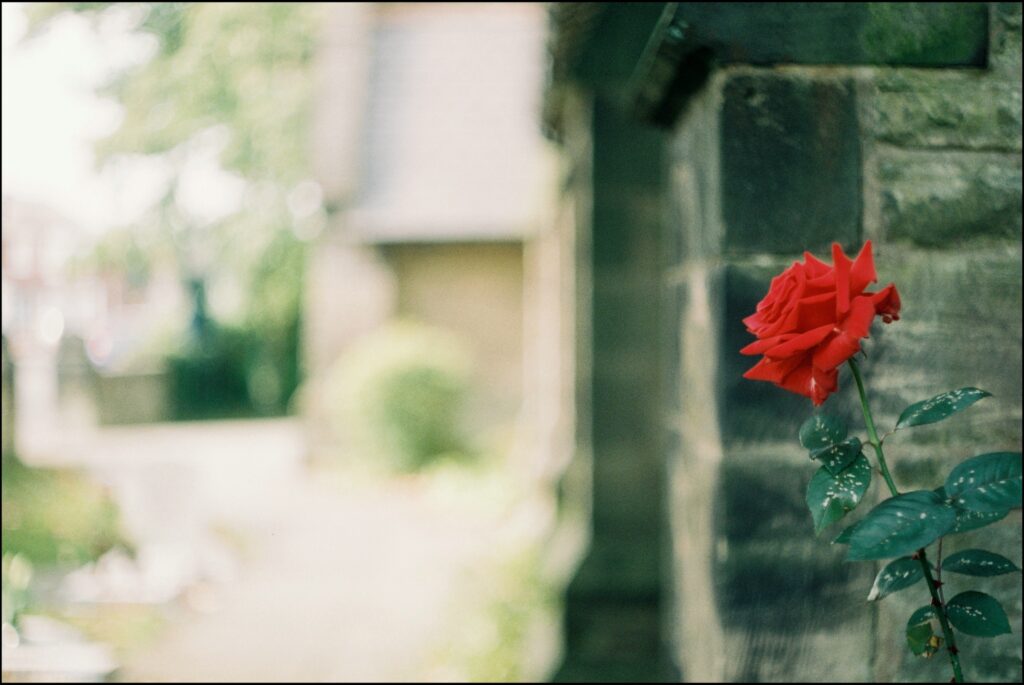
The next couple of hours were spent looking at what I’d actually come to see, and I managed to buy a large, French made, leather portmanteau case c 1900, and a medium sized leather trunk from the 1920’s, both of which were ideal candidates for restoration and priced reasonably. This was then followed by buying two tins of oil (and possibly lead) based Brunswick Green paint dating from the 1960’s. Neither had ever been opened, and I could still hear the paint swishing around when I shook the tins. Did I mention that I was gullible?
Eventually I wandered back to collect the Praktica box, at which point my enthusiastic seller informed that he had yet another camera in a bag, and was I interested. Of course I was, (gullibility factor once more) but gave little evidence of the fact, whereupon he handed me a more modern padded shoulder bag designed for an SLR and accessories. I opened the bag to find that it contained a very clean Canon EOS 5 and a couple of Sigma zoom lenses. Inside the bag was an unused 2CR5 battery, so I asked if he’d mind if I could use it to test if the camera was working. He assented, and upon fitting it, the camera sprang into life. The small LCD screen showed that it had a film inside with only three shots taken. There were also four more rolls of unused Fuji Superia 200 and a roll of Agfa Vista 400 in a zipped pocket. I asked how much he wanted, expecting another silly price, and indeed I got one. £20 was the request! I politely paid and slung the bag over my shoulder, along with the heavy old Praktica box, the portmanteau bag, two tins of paint and the leather trunk. Thus encumbered, I waddled ungainly back to my car.
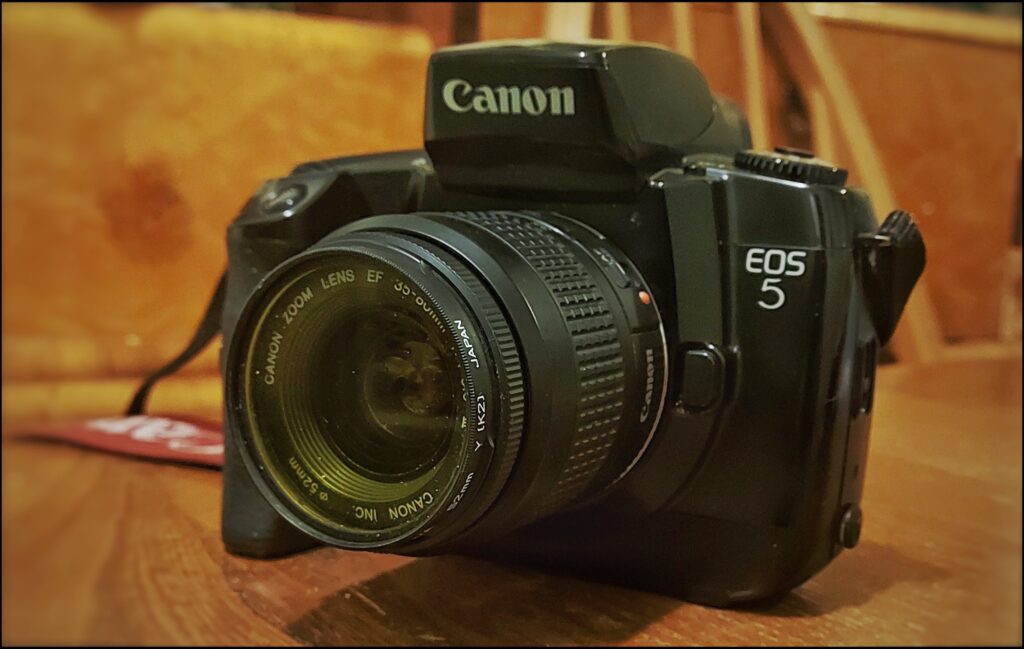
The Canon EOS 5 was one of those cameras which seemed so amazing when reading about them back in the day. Now, I unexpectedly had an example of my own. I quickly dubbed it the Starship Enterprise, so advanced was it in comparison to what I usually use. I downloaded the owner’s manual and it went on and on and on.. It’s also larger than the slr cameras that I normally use. It is, however, very well designed and it’s handling more than compensated for it’s weight and bulk. I took little interest in the Sigma zoom lenses. I’m not snobbish about third party zoom lenses and have often used such, however when I tried this pair while finishing up the roll of film which was already in the camera, I was not particularly impressed by the outcome.
A few weeks later I attended at a Traction Engine Rally held nearby in the Cheshire countryside. It was another glorious summers day, and I was eager to try the Canon with some black and white film. This time I fitted a Canon EF 35-80mm lens which I already owned, and who’s performance had previously impressed me for what is a cheap kit lens. I chose a roll of Kentmere Pan 100, a film which I find is one of the nicest of the cheaper black and white films. Almost as an afterthought, I decided to take the diminutive Pal along as well. I loaded it with the roll of Agfa Vista 400 which had accompanied the Canon, and which had no date on it.
Thus armed, I set about photographing the event which was larger and more wide ranging than I’d expected. There were of course steam rollers, traction engines and stationary engines, as well as steam powered fairground organs, vintage tractors, classic cars and vintage military vehicles. The Pal M4 is a pleasant little camera to use in conjunction with my Sekonic Twinmate L208 light meter, and it’s only real drawback is that it’s diminutive size renders it slightly awkward for a chap with larger hands. When the results came back from the lab, I was delighted with the outcome. I hadn’t expected this relatively unknown little camera and it’s tiny lens to produce such nice images.
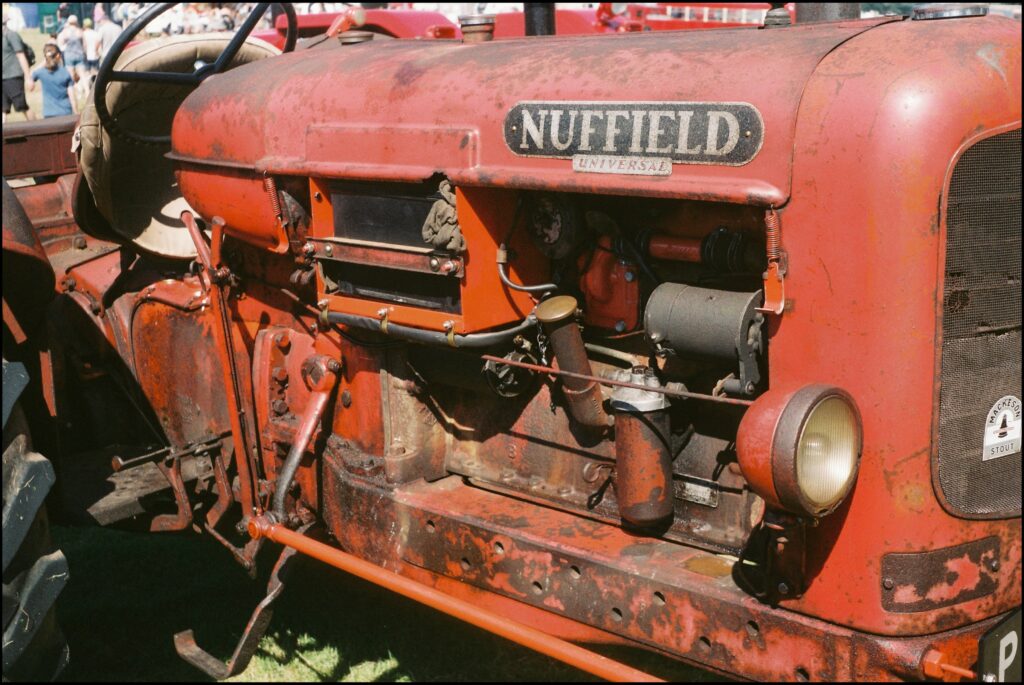
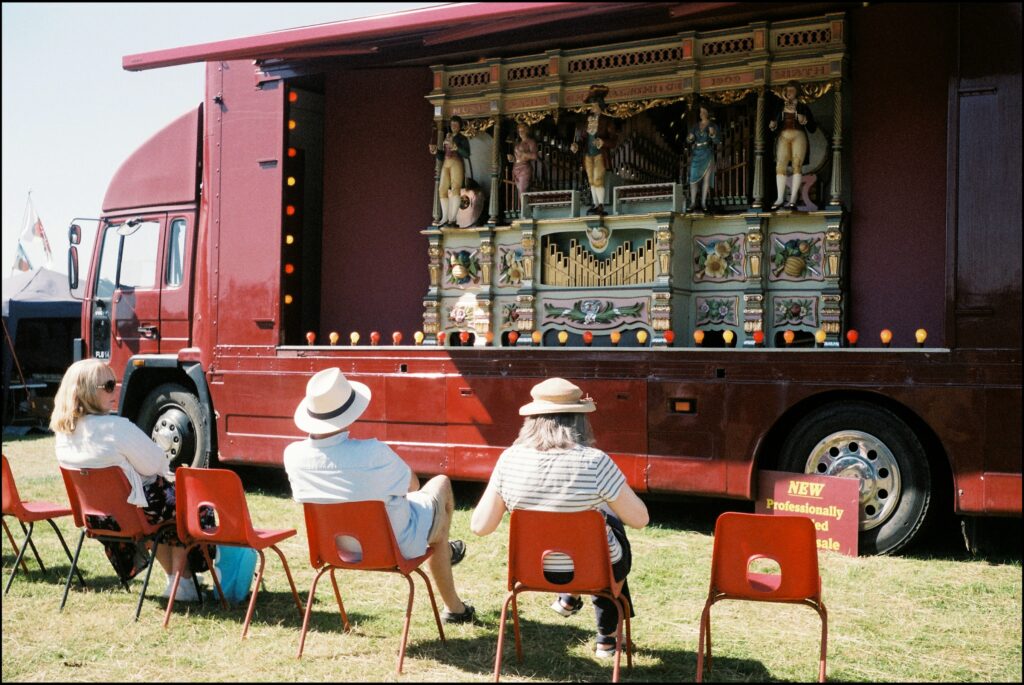
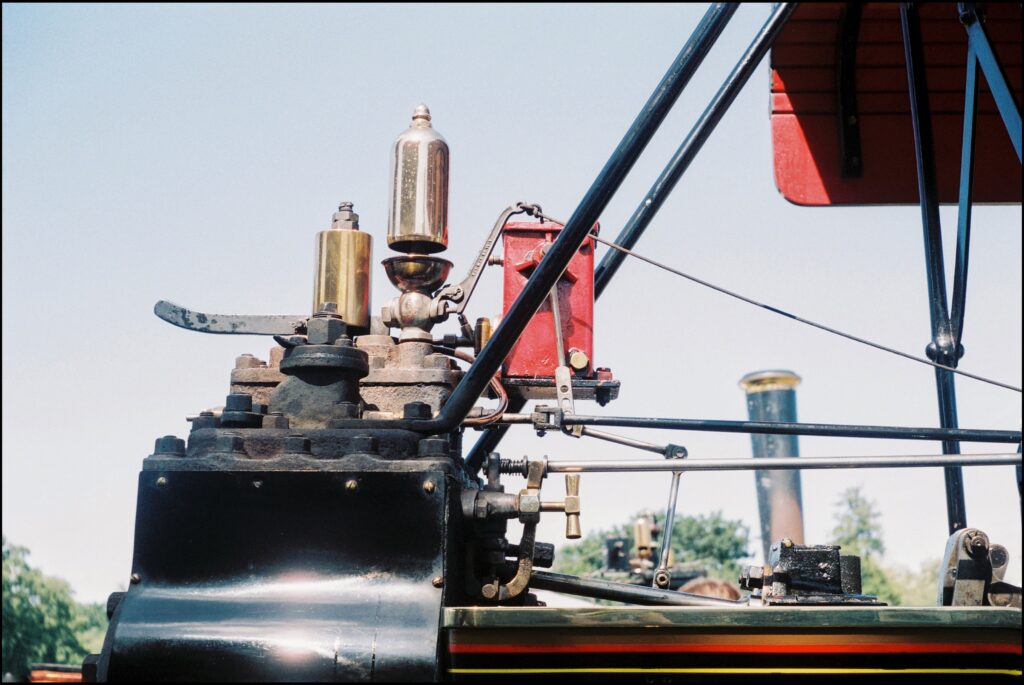
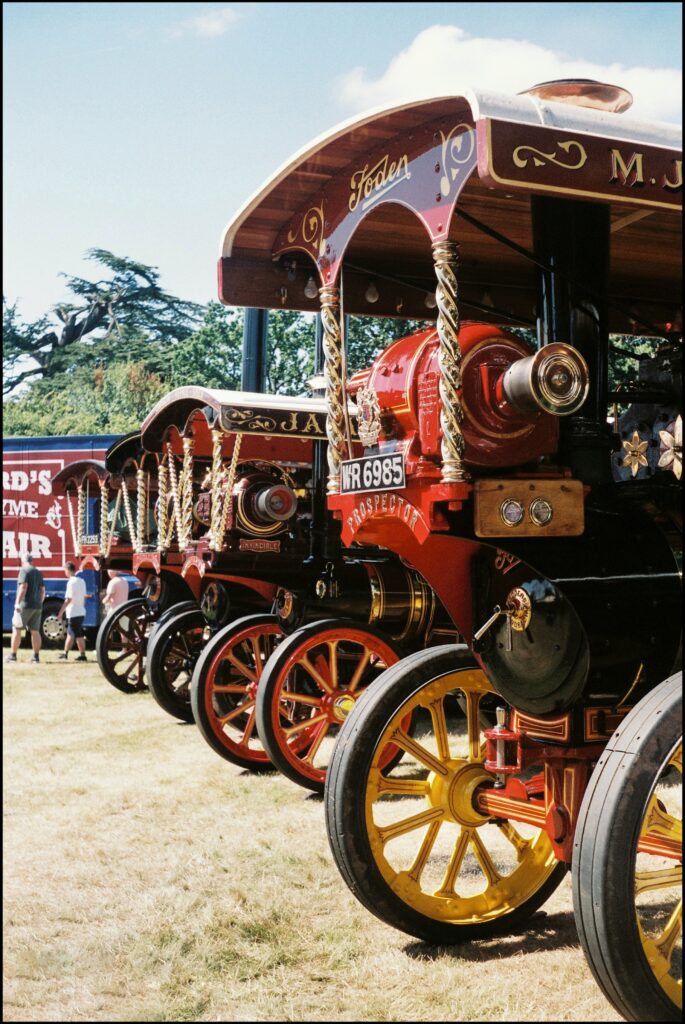
As for the Canon EOS 5, well I fell in love with it’s versatility and handling. Everything about it tells of a camera which was designed by people who knew their business and what their customers wanted. I have used it a couple of times since, and while it has every variety of setting available, I stuck mostly with aperture priority which is my favourite.
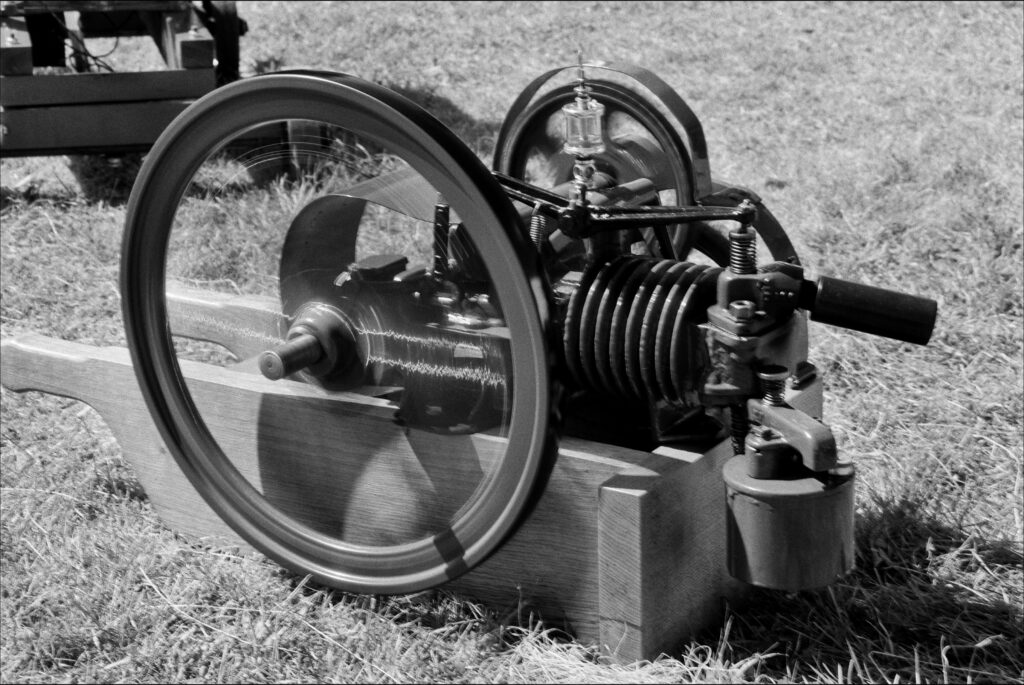
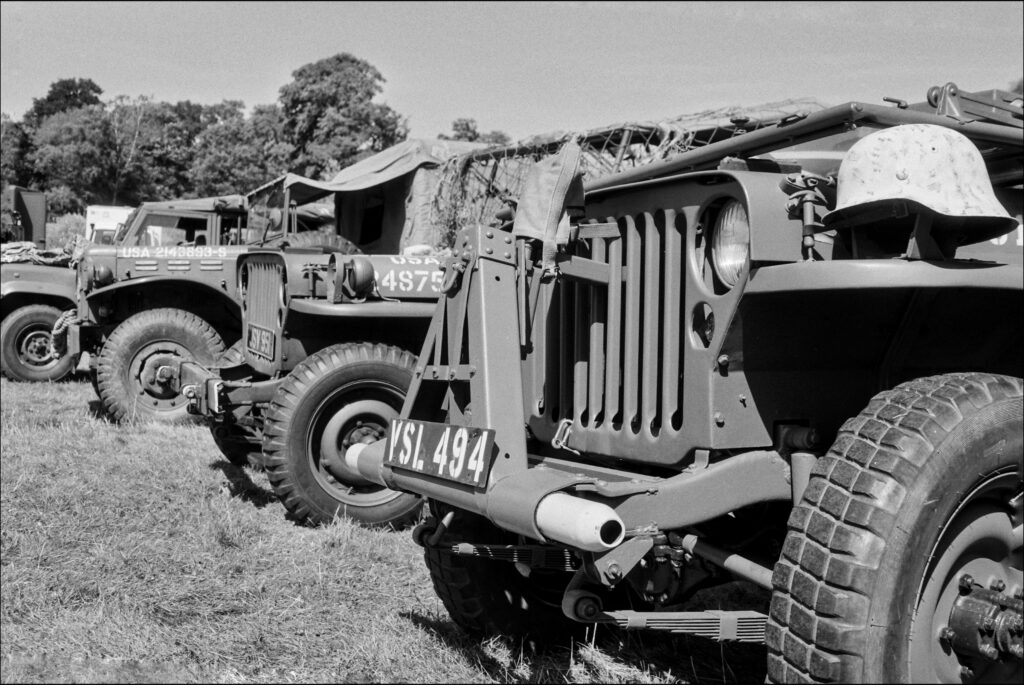
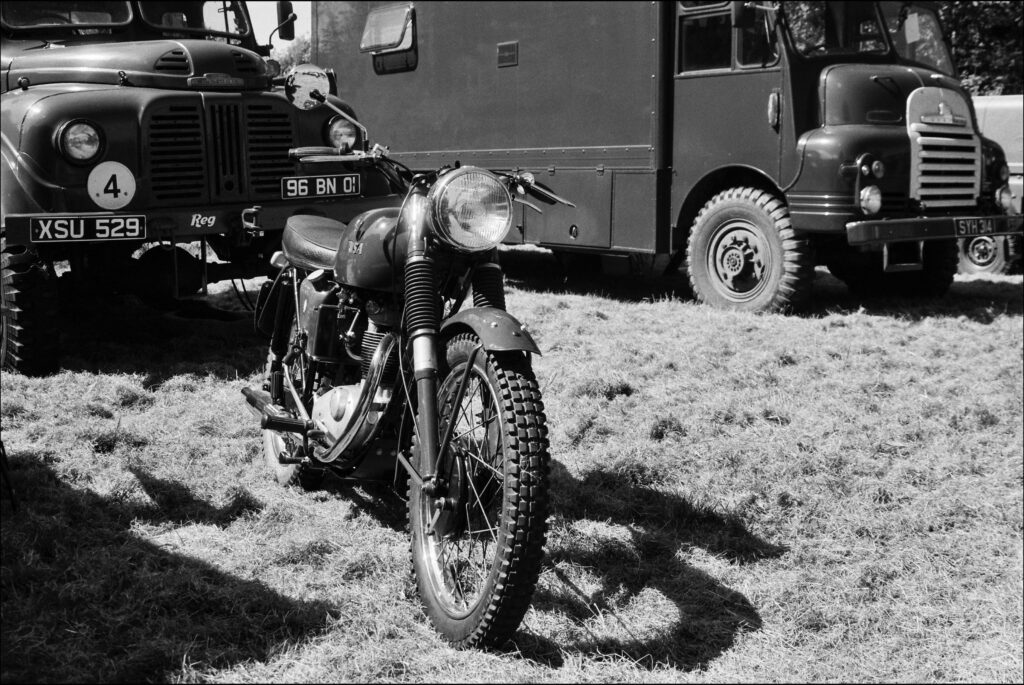
Share this post:
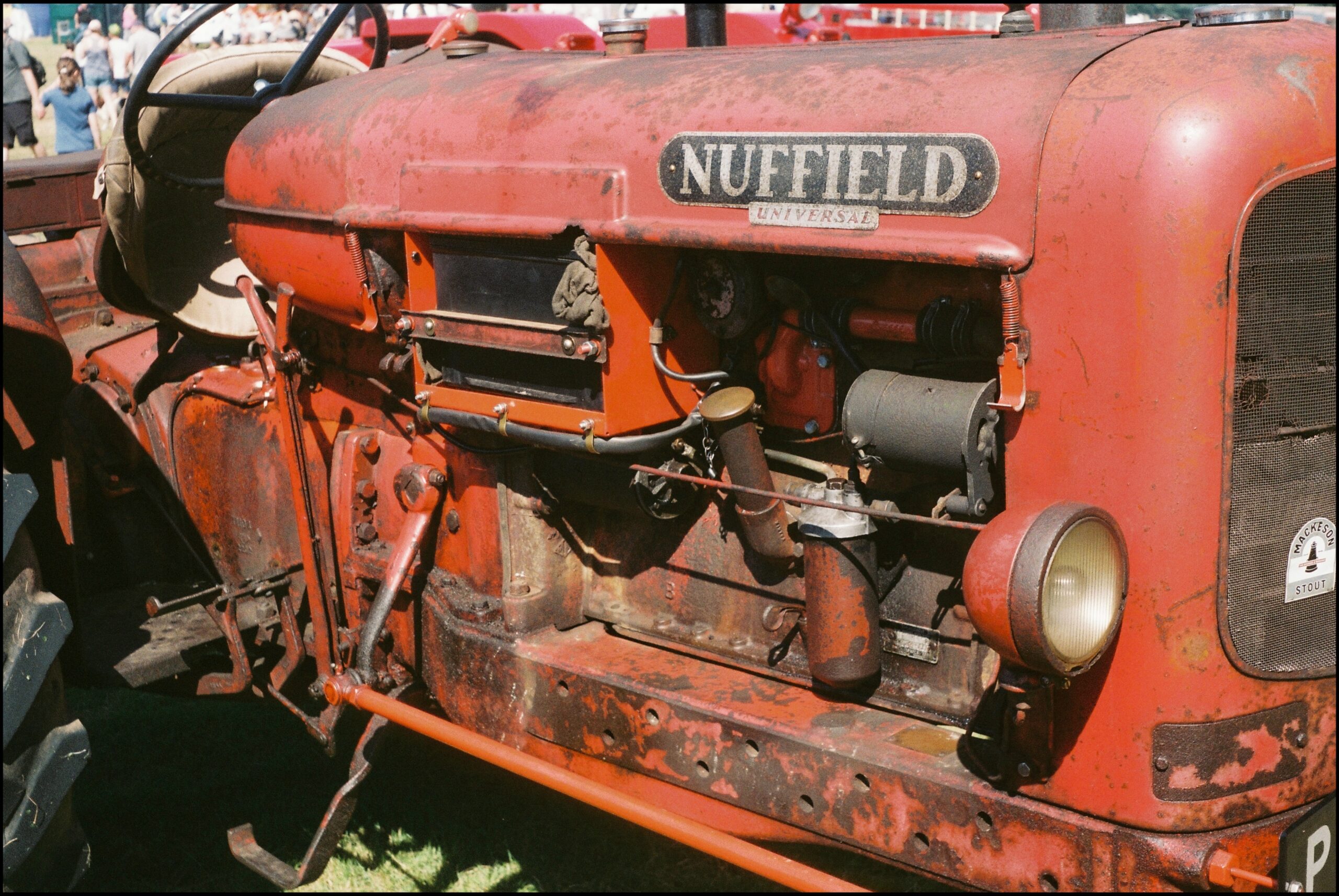
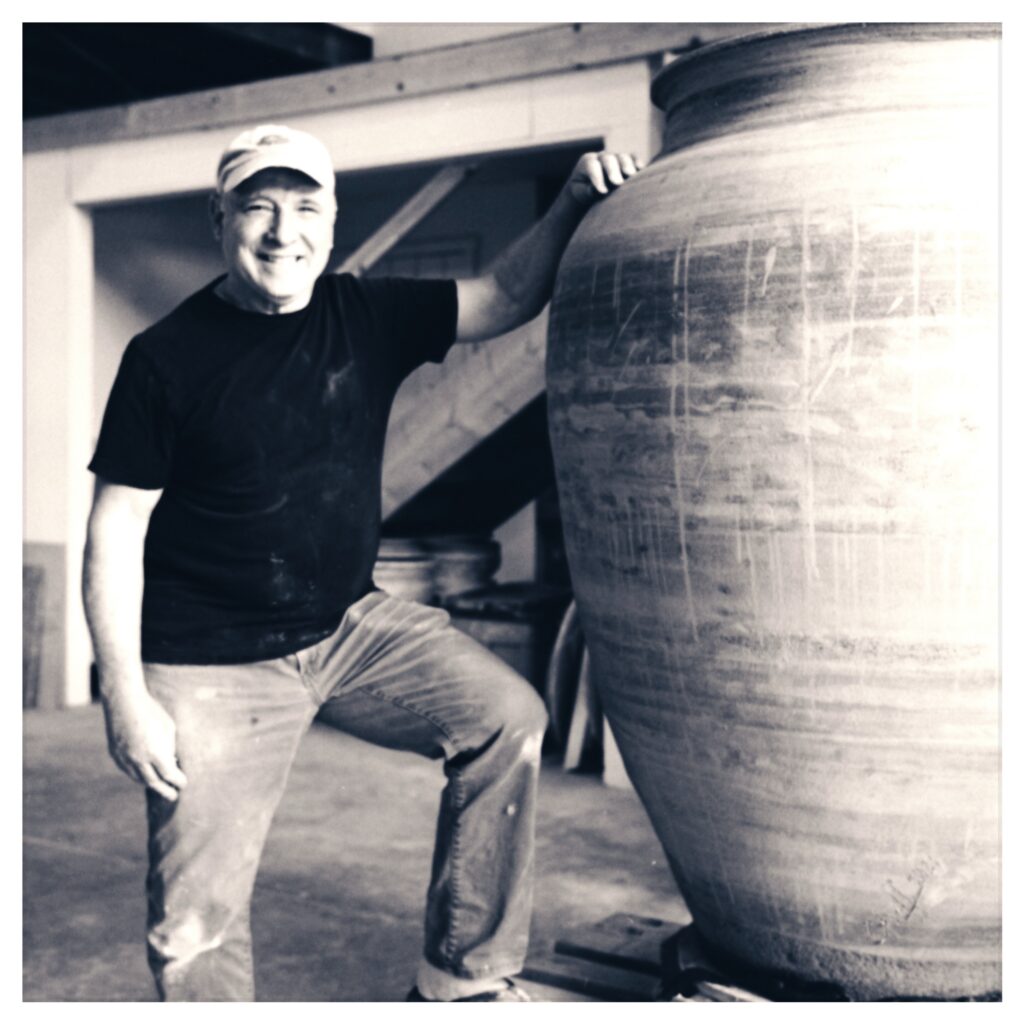
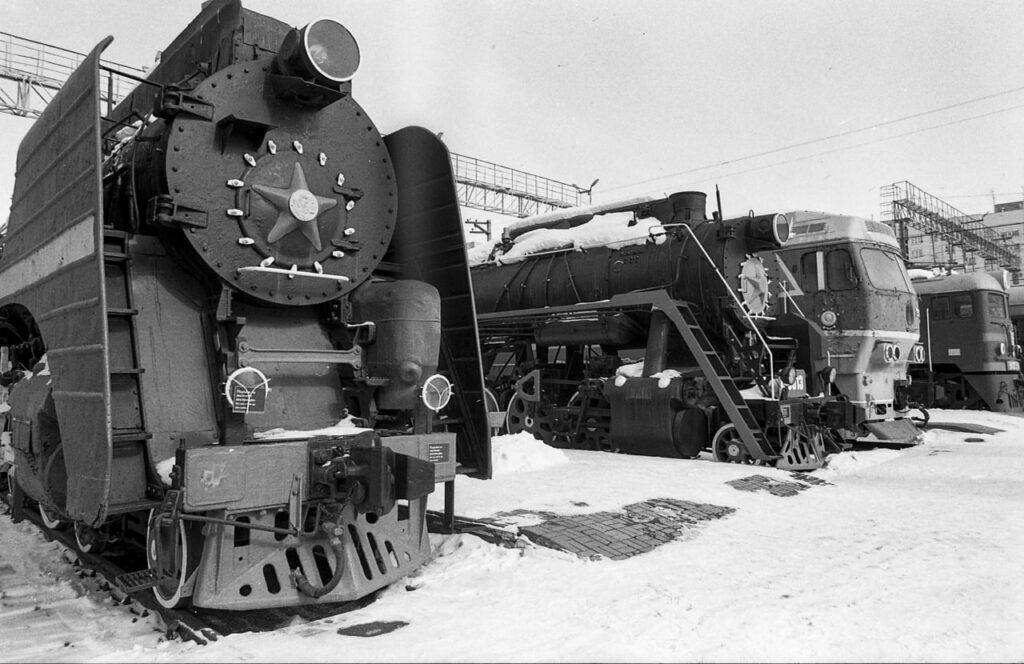
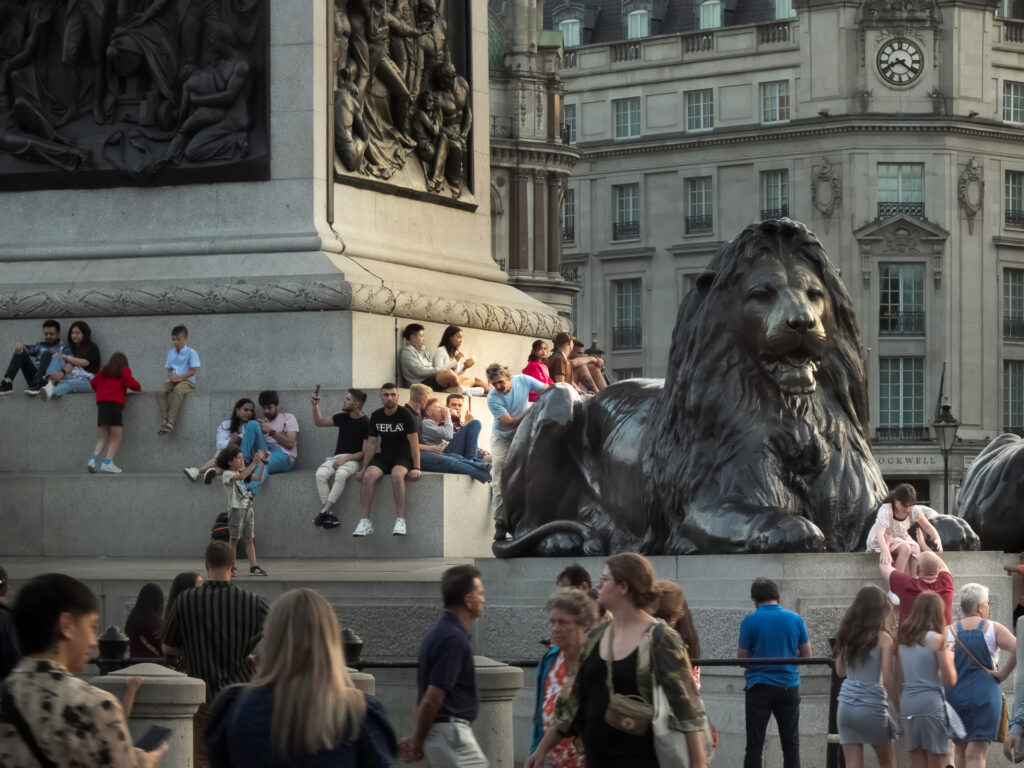
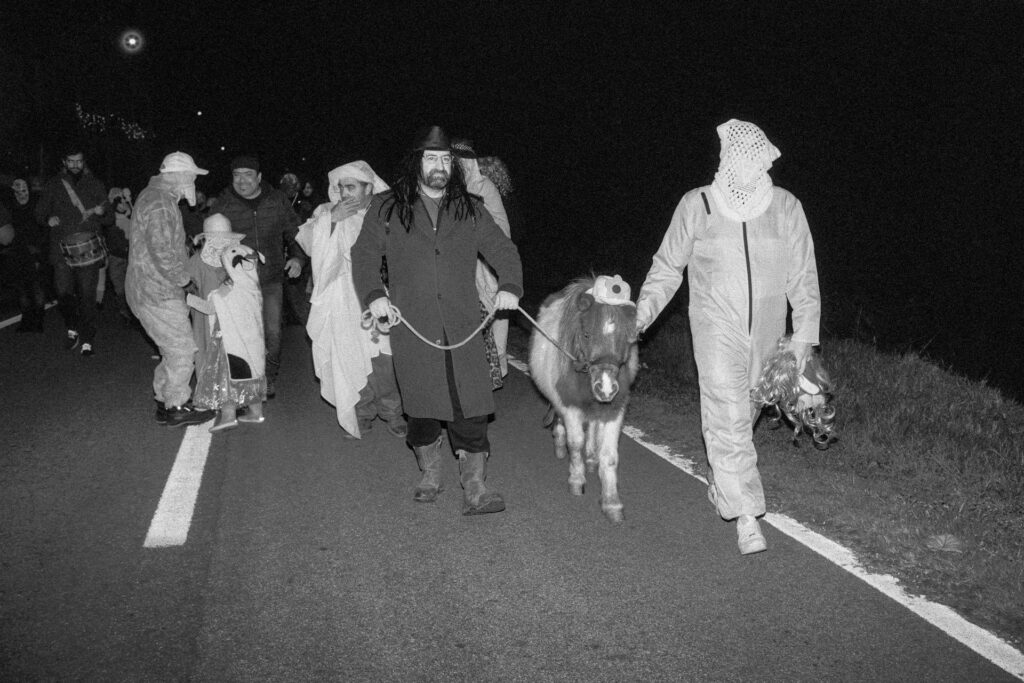




Comments
Tim Bradshaw on A Grand Day out Discovering a Canon EOS 5, Pal M4 and a Carl Zeiss Jena Panacolar
Comment posted: 19/04/2025
Comment posted: 19/04/2025
Keith Drysdale on A Grand Day out Discovering a Canon EOS 5, Pal M4 and a Carl Zeiss Jena Panacolar
Comment posted: 19/04/2025
Comment posted: 19/04/2025
Gary Smith on A Grand Day out Discovering a Canon EOS 5, Pal M4 and a Carl Zeiss Jena Panacolar
Comment posted: 19/04/2025
I also shot some steam tractors this past week, yours are more colorful!
Thanks for your article.
Comment posted: 19/04/2025
David Hawkins on A Grand Day out Discovering a Canon EOS 5, Pal M4 and a Carl Zeiss Jena Panacolar
Comment posted: 19/04/2025
Comment posted: 19/04/2025